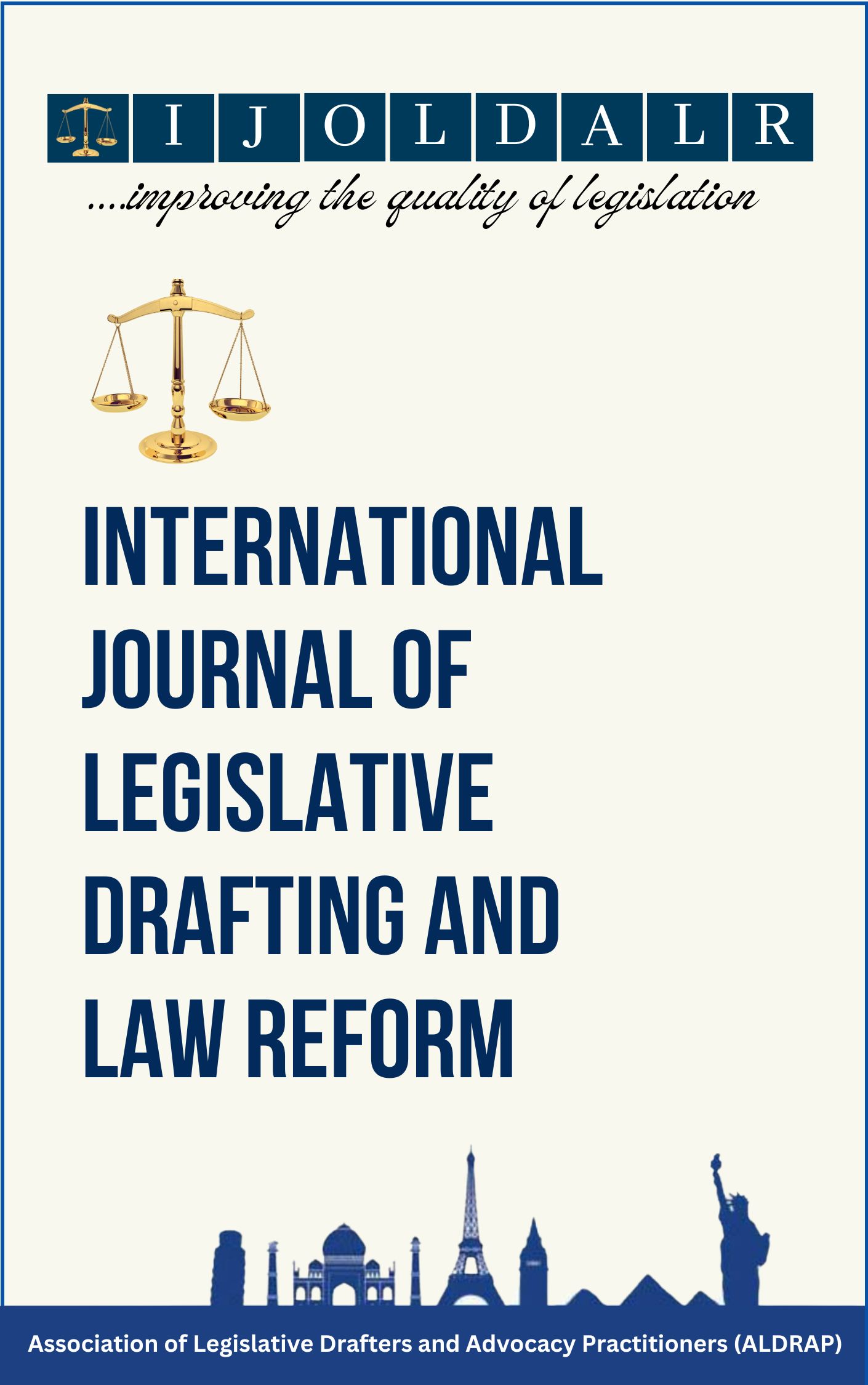Abstract
This article tackles some of the issues affecting the evolution of standards for statutory writing (or legislative drafting), drawing examples from the developing world, in jurisdictions that the author has worked. It contains a brief history of legislative drafting standards in Uganda, Sudan, Kosovo and South Sudan.
The article contains a discussion of the geo-political, cultural, socio-economic and other factors that have affected the evolution of statutory writing in the four territories mainly; colonialism/ imperialism by the British and the Ottoman Empire, the struggle for and achievement of self-determination, appreciation of rule of law, the unique characteristics of customary law, cross linguistic interference, the impact of regional integration and or globalisation, including the role of the United Nations (and its peacekeeping operations) and the European Union, the effect of development assistance programmes, law revision, the drafting styles of individual consultants and the persuasive influence of leading experts in the field of statutory writing or legislative drafting.
The article concludes that there is no common standard, developing common standards is costly and time-consuming and that there is need to address other challenges that affect the work of legislative drafters in the developing world.
Efforts to strengthen rule of law including through legislative strengthening programmes, in many parts of the developing world, remain high on the agenda for international development assistance. Rule of law practitioners have realised that standardising statutory writing remains one of the major challenges in implementing rule of law programmes. Developing standards in any policy area presupposes common parameters, it being understood that the more homogenous a society is, the easier it is to enact legislation and develop common legislative standards. Building national consensus on common standards or even defining fundamental or core values is complex because the aspirations of different elements or clusters of a given society may not be at par when attempts are made to develop standards. R. B. Seidman wasunable to identify common values in Zimbabwe, which in his view did not have value- consensus to guide the legislation, with a population characterised as follows,
"3% of its population have white faces, power, and privilege. 97% of the population have black faces, almost all are poor and vulnerable, have a rich, diverse culture, and speak mostly Shona and Ndebele, languages with which I have not a stammering acquaintance." 47
Additionally, rule of law programming requires in-depth understanding of the political context and grounding in national assessments, needs and aspirations and equal application of the law to all, among others.
Parliamentary drafting manuals outline basic principles of statutory writing that require legislative counsel to make sentences simple and logical; use the positive rather than the negative; avoid double and triple negatives; and use the active voice rather than the passive, inter alia. 48 with the move towards use of plain English and calls for modernisation of legal English, several parliamentary counsel and drafting offices have responded to the request to modernise legal English in general as a result of which, a number of drafting style manuals have been updated over the last two or three decades in line with the calls for change and drafters have generally complied with the new guidelines. Even where guidelines have been developed on how to write legislation, it is not automatic that these will be applied as these guidelines are only as good as the people who apply them, and are hard for judges to review.
The territories under discussion in this article, notably Uganda, Sudan, Kosovo51 and South Sudan52 are pluralistic and have individually evolved in varied ways, thus the difference in the development of standards for statutory writing, if any. The interplay of traditional Africa, Islam and the West (including colonialism) in the continent's heritage, well-captured and propagated by A. Mazrui as "the triple heritage," cannot be ignored.53 An example of this interplay, further discussed in this paper, is the influence of the English legal system. Resultantly, laws were imported into the relevant territories via India by the British administration during the colonial period. As such, the basic structure of the present legal system in most of these countries remains influenced by that in England in the 20thcentury. For Kosovo, the influence of the Ottoman Empire and the Socialist Federal Republic of Yugoslavia (SFRY) as well as that of the United Nations Interim Administration Mission in Kosovo (UNMIK) is notable. In all cases, the impact of the forces of regional integration and globalisation, culture, language and other internal and external actors remains critical at all times.
This article does not delve into the specific details of how statutory writing (here used interchangeable with "legislative drafting") has been standardised in the geographical regions under discussion, but briefly lays bare the status of the Statute Book and examines leading factors that affect the development of statutory writing standards as well as the challenges that arise and affect the process.



 National Library of Nigeria
National Library of Nigeria.jpg) Association of Nigerian Authors
Association of Nigerian Authors Nigerian Library Association
Nigerian Library Association EagleScan
EagleScan Crossref
Crossref